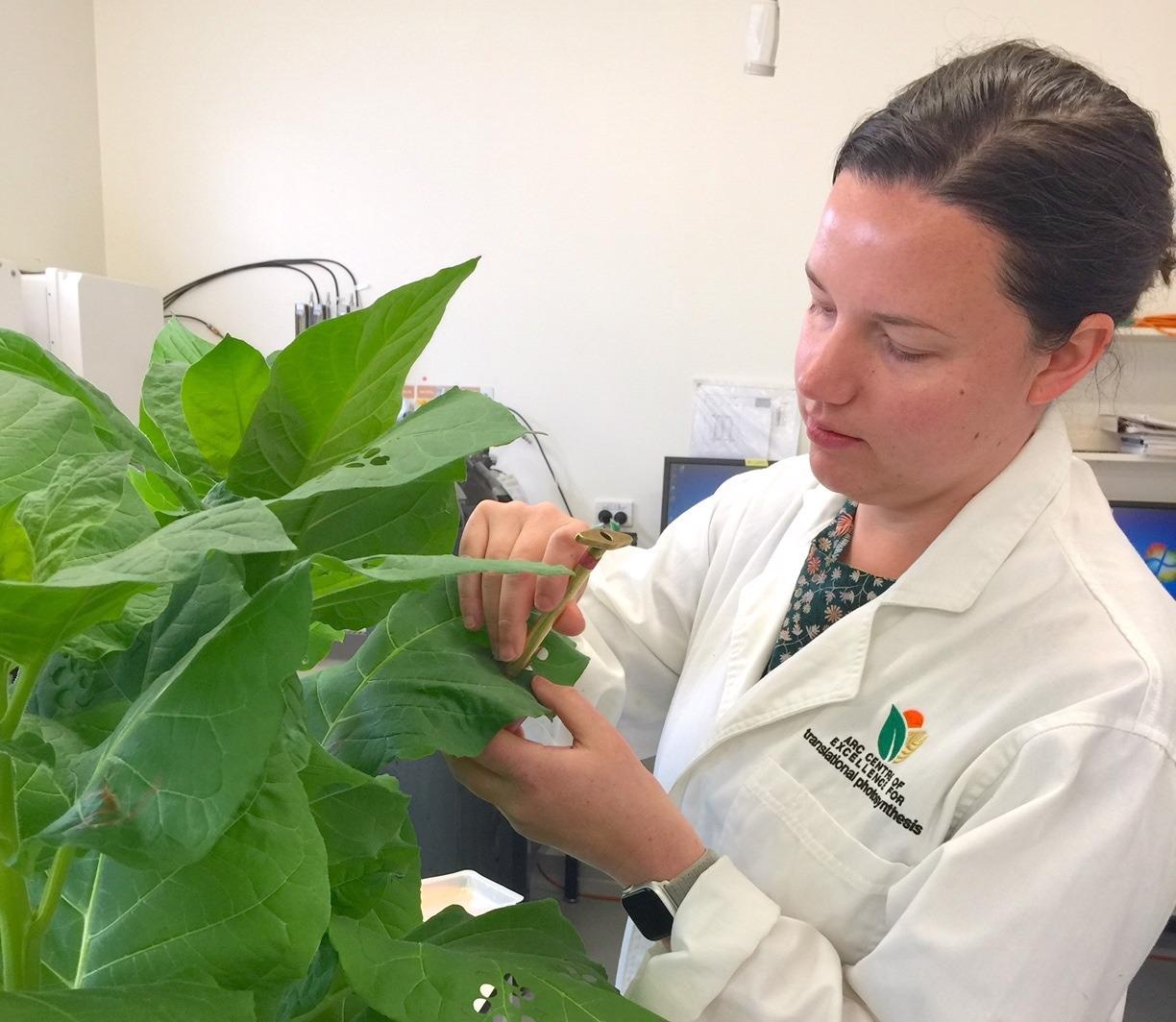Adjusting photosynthesis has become a research priority in an attempt to optimize crop yields in the face of climate change and environmental aspects. A group from the Australian National University (ANU) studied the impacts of expanding the number of carbon dioxide channels in plant membranes in recent research published in the Journal of Experimental Botany but found no effect on photosynthesis in model tobacco plants.
 Dr Tory Clarke, ANU/RIPE project. Image Credit: RIPE
Dr Tory Clarke, ANU/RIPE project. Image Credit: RIPE
Carbon dioxide (CO2) is supplied to the chloroplasts inside leaf cells, where it is corrected into sugars by the enzyme Rubisco. CO2 must dissipate into the leaf and through the leaf mesophyll cells, overcoming barriers such as cell walls and membranes. Expanding CO2 diffusion through mesophyll cells into the chloroplast (known as mesophyll conductance) strengthens photosynthesis, raising crop yields while decreasing water use.
Our research targeted the membranes in leaf cells; we wanted to know if we could make CO2 transfer more efficient by adding extra channels for CO2 diffusion into cell membranes.”
Dr Tory Clarke, Researcher, RIPE
Clarke performed this study at ANU.
The ANU group increased the number of aquaporin proteins in the plasma membranes of test tobacco plants to attack CO2 transmission across plant cell membranes.
Aquaporins are membrane channels that can facilitate the movement of molecules such as water and gasses across membranes. Our research confirms that the channels localize in the leaf cell plasma membrane.”
Dr Michael Groszmann, Senior Author, RIPE
Previous research has shown that a subset of plant aquaporins, the Plasma-membrane Intrinsic Proteins (PIPs), have CO2 transfer capabilities in test systems, although there have been conflicting stories about their effect on plant mesophyll conductance.
In this study, we were able to introduce more PIP aquaporin channels into the mesophyll cell membrane, but surprisingly this did not detectably increase the conductance of CO2 through the mesophyll cell, with no effect on photosynthetic rates either.”
Dr Tory Clarke, Researcher, RIPE
“Plant growth and environmental conditions may play a significant role in the ability of aquaporins to alter mesophyll conductance,” said Susanne von Caemmerer, a Professor of Molecular Plant Physiology at the Research School of Biology at the ANU, who headed this research alongside Groszmann.
“Our study also used computer modeling to predict how changes to membrane CO2 permeability would impact overall mesophyll conductance. We found that in order to improve overall mesophyll conductance by 20%, the amount of CO2 that would need to cross the plant cell membrane would need to double,” Caemmerer added.
While this study did not lead to better photosynthesis, it did provide a better understanding of the processes of CO2 from the atmosphere to the chloroplast.
“Taking what we’ve learned in this study, we can now focus our work on gaining a better understanding of aquaporin function and how we can improve mesophyll conductance and photosynthesis,” said Groszmann.
Source:
Journal reference:
Clarke, V. C., et al. (2022) Mesophyll conductance is unaffected by expression of Arabidopsis PIP1 aquaporins in the plasmalemma of Nicotiana. Journal of Experimental Botany. doi.org/10.1093/jxb/erac065.